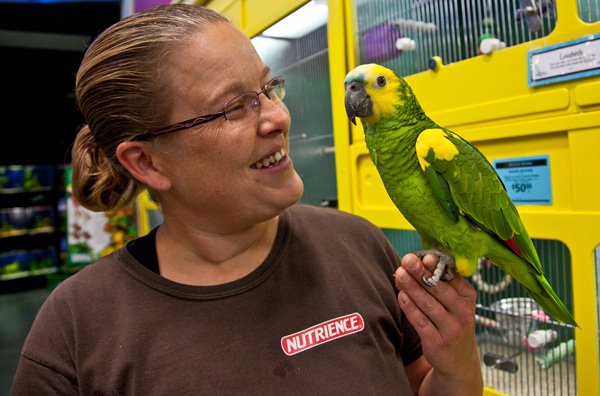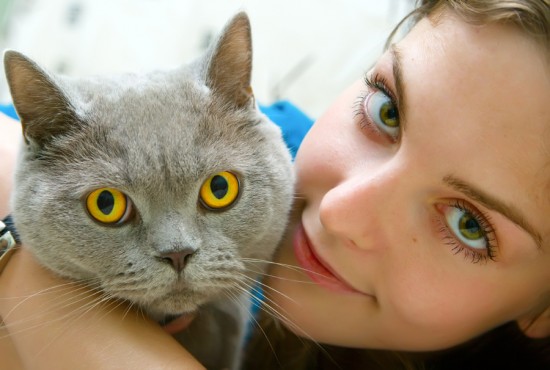

Deciding to bring a new kitten into your life can be amazing and very exciting. But if you're considering bringing a kitten into your home, there are many things you will need to consider. You will be responsible for a cuddly bundle of fluff that will grow into a mature cat, which can live for up to 20 years! If you are not ready for that commitment, they a cat may not be for you. Begin by thinking through some questions:
So you have thought about all these questions and you have made the decision that a cat will fit into your life. Brilliant, but now the work and fun begins! Bringing your new kitten home will be a very exciting time for you and your family, but for the kitten it can be a stressful time when they leave their family and familiar surroundings. The transition is made easier for your kitten if you have done a little advance preparation. Make sure you have all the equipment you need. This will include a secure cat carrier. When you pick up your kitten they must be placed into a carrier while travelling to your home. A loose kitten in a car could easily cause accidents to happen. Once at home, it is worth having a quiet area set up for her, such as a box or basket with a warm blanket in a quiet place, however it is likely that your new kitten may seek out other small 'hidey holes' in the first few days. Make sure the water and food bowls and litter tray are in a quiet and easily accessible area where she can eat and do her business undisturbed. Suitable toys will help you interact, play and bond with your kitten. Expensive toys are not necessary as they will enjoy chasing a piece of ribbon, string or rolled up paper. Supervise your kitten with any toys though. If your kitten is a long haired variety, a soft brush is a worthwhile investment to get her used to the grooming routine which will follow for the rest of her life.
A piece of equipment often overlooked is a suitable scratching post. If this is not provided, your kitten will soon find other places to scratch her claws, including your furniture and curtains!
Ever heard the expression 'curiosity killed the cat'? Well, that just about sums cats up really; they are exceptionally curious and adventurous animals, but usually this natural curiosity does not lead to anything too sinister! Cats are agile, natural climbers, explorers and fast learners and will probably want to get up to a lot of mischief once she has settled into her new home. While she is still in the house, it is a good idea to expose her to as many novel experiences, people, sights and smells as possible including everyday things such as the TV, washing machine and vacuum cleaner. Remember to let her have an 'escape route' though, to her bed or quiet area in case she gets scared.
The most important aspect of introducing her to people is to let as many people as she is happy too, handle and stroke her. You should never force her to be handled though, if she does not want to. If other pets live in the house then introductions should also take place as soon as she has settled in. Whatever the other species she lives with though, it is advisable to never leave them alone unsupervised until you are confident that they are comfortable with one another.
There will probably be a few rules you will want to lay down from the start including no curtain climbing, no scratching of claws on furniture and no pinching of food from the work counters! Your kitten will try to starch these as far as she can, however, if there is a behaviour you want to stop, try a short and sharp clap of the hands with a loud 'No!' She will soon get the message by your consistent reaction to the behaviours. Under no circumstances should you ever hit your kitten.
Cats are specialised carnivores and must have a protein based diet. There is a special protein called 'Taurine' which can only be found in meat which is essential for a cat to remain healthy and is found in all good quality cat foods. If the cat of kitten is not provided with Taurine, then it can lead to serious health complications including heart and eye problems. Never feed your cat dog food or carbohydrates. This can be in either dry or wet food form and is usually simply down to the preference of the cat or kitten. Dried foods have the advantage of being easy to feed, convenient and also help keep the teeth in good condition.
The packaging on the kitten food you choose will have directions as to required amounts and daily feeding, so follow these carefully.
You should always provide clean, fresh water daily. This is especially important if the cat has a dry food diet.
If you are going to feed treats, make sure you feed them in moderation and make sure they are healthy ones.
A trip to the vets for a health check is a good idea once your kitten has settled, although a good breeder will have probably had a vet give them the once over, checking especially for any conditions which that particular breed or may be prone to. Kittens can have their routine vaccinations any time from around 8 or 9 weeks of age with the second vaccination 3 weeks later. These vaccinations will help protect your kitten from a range of illnesses. This is also a good time to ask your vets advice about internal and external parasites. Fleas, tick, lice and worms can all make your kitten uncomfortable and it is better to prevent them rather than have to treat the problem once it has taken hold. There are various treatments available and you vet is best placed to advise you on which is the best treatment for your kitten.
The vet will also be able to microchip your kitten. This is a relatively inexpensive thing to do and gives you piece of mind once your kitten is allowed into the big, wide world to explore.
Lastly, when the kitten is old enough, remember to talk to your vet about spaying or neutering. There are too many unwanted cats in the world, and do you want to add to that number? If you do not intend to breed from your cat, please take this course of action. It is rarely detrimental to the health or behaviour of the cat, and any issues you have with it can be put at rest by having a conversation with your vet.
Most kittens are very easy to litter train being naturally clean animals. The litter tray should be placed in a quiet and easy to access place. You should place your kitten into the litter tray a frequent intervals, after she has woken up and after each time she has eaten. Watch your kitten for any specific toilet behaviour such as pawing at the floor and place her into the tray. She will soon pick up the routine and provided the tray is kept as clean as possible she will soon learn to use it on every occasion a toilet stop is needed.
The kitten may prefer different types of litter so it is worth experimenting with clay, soil, sand and litter from the pet shop to find which one she prefers.
Ideally, cats should not be allowed out next to busy road with lots of traffic. She could easily have an accident herself or cause an accident. Your kitten should not be allowed outside until at least a week after it has finished its course of vaccinations at around 13 - 14 weeks old. Choose a dry day for her first outdoors adventure. Make sure you have enough time to spend with her to allow her to get used to the sights, sounds and smells she will experience. Remember, this is all new to her and she may be scared so don't force the situation. If you have a garden, accompany her and play with her in the garden to allow her to relax - she may even follow you around and make sure she knows her way back to the house or cat flap easily. It is recommended not to leave your kitten outside alone until she is around 6 months of age. It is also advisable that you have your kitten neutered before letting her outside. Cats reach sexual maturity at a very early age, around 5 to 8 months of age, and therefore you dont want to risk your cat getting pregnant.
Ultimately, you need to relax and enjoy the ride of being the proud owner of a new kitten! There will be hard times, good, times, joyful times and maybe some sad times so remember the reasons you decided to make a kitten a part of your family and enjoy all the love, fun and affection she has to offer.
 The Many Benefits Of Taking Your Dog For A Good Long Walk
The Many Benefits
The Many Benefits Of Taking Your Dog For A Good Long Walk
The Many Benefits
 The Regulatory Authority For The Recall Of Foods
The Regulatory Authority For The Recall Of Foods
The Regulatory Authority For The Recall Of Foods
The Regulatory Authority For The Recall Of Foods
 Underground Fence Training for Your Dog
Underground Fence Training for Your Dog
If a t
Underground Fence Training for Your Dog
Underground Fence Training for Your Dog
If a t
 Keep Your Chickens Safe from Predators by Providing them with Chicken Runs
Keep Your Chickens Safe from Predators by Providing them w
Keep Your Chickens Safe from Predators by Providing them with Chicken Runs
Keep Your Chickens Safe from Predators by Providing them w
 Acquiring A New Cat Or Kitten
Acquiring A New C
Acquiring A New Cat Or Kitten
Acquiring A New C
Copyright © 2005-2016 Pet Information All Rights Reserved
Contact us: www162date@outlook.com